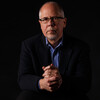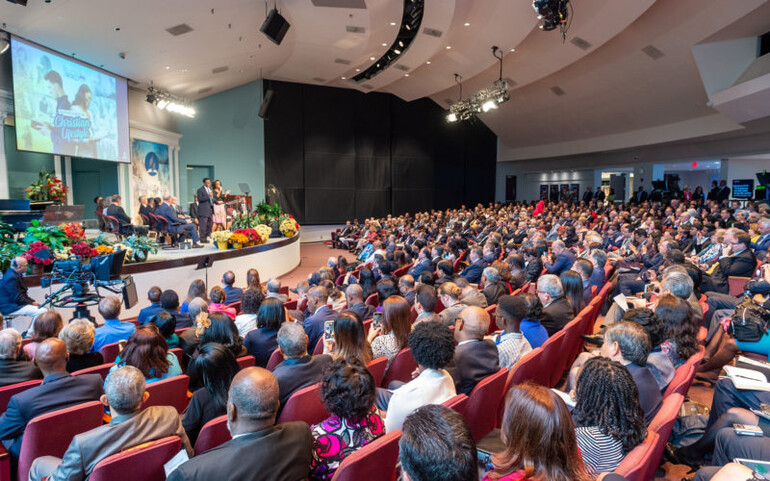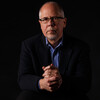During the Annual Council meetings of the General Conference (GC) executive committee, which concluded this week, delegates from around the world voted on important issues, including:
- A new statement on the biblical view of unborn life and implications for abortion;
- A plan to bring all world church divisions into tithe parity;
- An official warning to several unions determined to be out of compliance with church policy.
The so-called “abortion” statement was circulated and discussed early in the session but finally voted on during Wednesday’s agenda, the final day. Adventist hospitals and their corresponding ethics committees have been seeking to follow church guidelines accepted in 1992. While the new statement is meant to represent a biblically foundational stance of the church regarding the sanctity of life, it is not yet designed to specifically inform Adventist health care professionals and institutions. What those “extremes” are will be further determined by additional study and consultation with Adventist pastors, women and health care leaders. Current figures from Adventist health systems show that life is indeed valued there and, contrary to what some members have feared, abortions are exceedingly rare.
Delegates approved a plan to equalize the tithe percentage allocated to the General Conference by each world division at 3%. The adjustment will happen incrementally over the next 10 years. This is an important change, acknowledging that the world membership has left the North American Division (NAD) in the dust. Since the inception of the church, North America has been the “breadbasket” for world church mission. That is rapidly changing, and delegates feel it is time for the tithe burden to be spread more evenly. Currently the NAD contributes 5.25% of tithe to the GC. That will diminish each year until 2024, when it arrives at 3%. At the same time, the tithe percentage from all other world divisions will begin to rise, reaching 3% by 2030. NAD will also add .85% to its contribution to help cover the additional benefit received from GC institutions in its territory (Andrews University and Loma Linda University). It is important to note that while percentages may in time become more equal, the implications for the world church are less certain. Financial currencies around the globe may not be equal in their stability, so a higher dependence of tithe from beyond the NAD may prove challenging at times for world church leaders as they manage monthly cash flow.
The warning to noncompliant unions stemmed from an action taken at last year’s Annual Council to set up compliance committees and protocols. While those committees never functioned, world church leaders brought a recommended action to this year’s gathering. The initial wording sought to warn four union conferences (Danish, North German, Norwegian and Swedish) and give a “public reprimand” to the presidents of the Columbia Union and Pacific Union. Each of these unions have been viewed by church leadership as out of compliance with ordination policy. When it became evident that, at least for some, a reprimand would instead be viewed as a badge of honor, delegates voted to amend the action to become a warning for all six entities. Although a concern was voiced by more than one delegate, no warning was recommended by church leaders for unions around the world out of compliance with other policy matters such as financial audits.
Some in attendance, as well as many who watched the livestream throughout the meetings, were surprised by trends presented by David Trim of the world church Office of Statistics, Archives and Research. Trim indicated that a careful reflection of these trends might help steer resources away from increasing top-heavy administrations and toward more frontline mission. Since 1988, while the number of pastors has grown 85%, those listed in administrative roles have risen an astounding 300%.
Read additional reports from the 2019 Annual Council meetings from the Adventist News Network.
Several Pacific Northwest representatives, including North Pacific Union Conference president John Freedman, were voting members of the proceedings. Freedman has shared some of his reflections of the 2019 Annual Council below.
Observations from John Freedman
There was a great spirit of collegiality for most of the Annual Council (AC). They covered a huge amount of material, mainly because approval of this committee is needed to forward recommendations to the General Conference Session next year.
The rollout of the 2020–2025 GC "I Will Go" strategic plan was inspirational. We are being asked to answer the call to go into all the world with, "Here am I, send me."
Delegates did mention several times the preference to receive pertinent materials well before the meeting begins. The GC often struggles here because of all the committees that have to sign off before a recommendation can be brought to the AC.
Regarding the issue of tithe parity, there was mostly very positive support from the world delegates, with genuine gratitude to the NAD for starting and supporting the world mission for many years. One union president said, "... But no father wants his son living at home forever." Unity and appreciation was sweet.
A statement on the sanctity of life and abortion was discussed. Delegates discovered the GC is wanting to also write guidelines for our medical work. The statement voted was very biblically based and closed with appeals to treat people with grace. After being sent back to the writing committee with several suggestions from delegates, it was brought back and approved.
Several physicians spoke to sensitive issues surrounding the abortion issue. Most impressive was the very low numbers of abortions reported in our NAD Adventist hospitals over the last several years. Adventist Health West had only one. This was a real contrast to the letters being emailed to our pastors and lay members claiming hundreds have been done. It only proves once again we must fact-check information sent to us over the internet or unsolicited through the mail.
GC administration, stressing parity, pushed for the removal of a policy that gave invitations to local conference presidents of the territory in which the GC holds the AC to attend the AC with voice but no vote. They felt that, since most AC meetings are now held in the NAD, the NAD had a unfair advantage.
The contentious item came over the compliance policy. There is not unity on this issue. Some are doubting the use of force through a compliance policy will accomplish the unity we seek. It was mentioned again that two-thirds of the committee members who studied the ordination issue in preparation for the 2015 GC Session recommended some way forward for ordination of women. We must continue to pray for God's leading. Only His Spirit will be able to accomplish what we all desire, which is unity in Christ Jesus.










